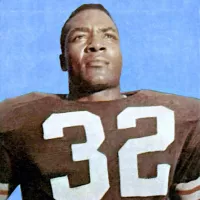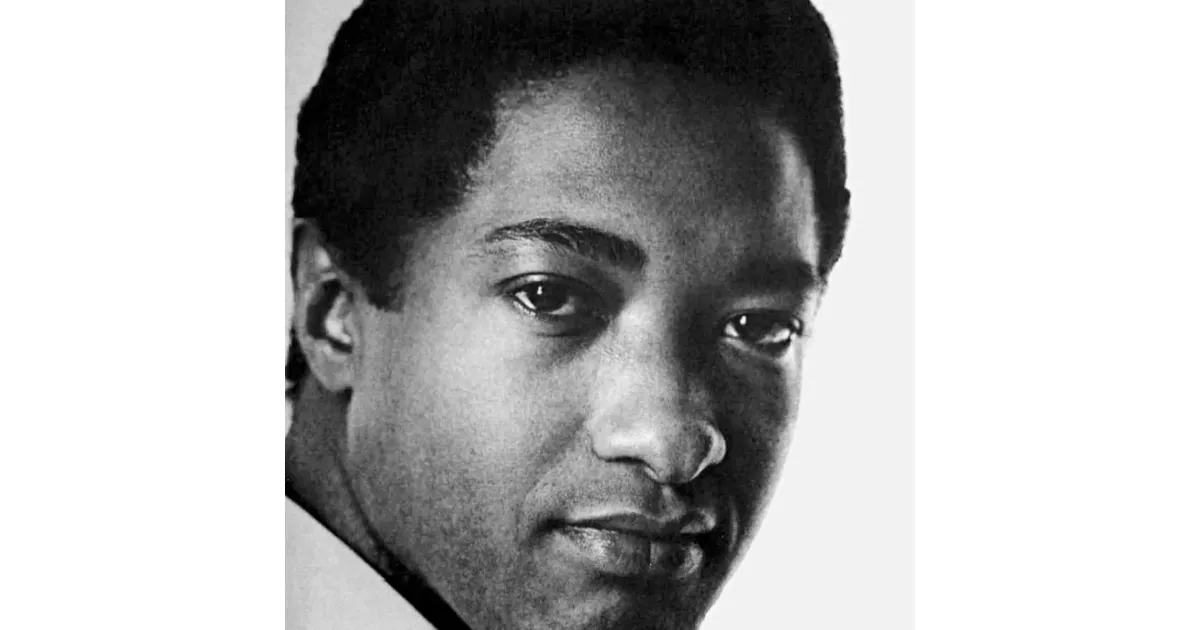Sam Cooke, crowned the "King of Soul," was a highly influential American singer and songwriter who shaped the landscape of soul music. His exceptional vocals and significant contributions to the genre cemented his place in music history. His career, though tragically cut short after eight years, saw the release of 29 top 40 hits on Billboard's Pop Singles chart and 20 top ten hits on their Black Singles chart. Cooke's life ended in 1964 after a fatal shooting by a motel manager in Los Angeles. Despite the court's ruling of justifiable homicide, the circumstances surrounding his death remain a point of contention for his family. Cooke's legacy as a pioneering force in R&B music is solidified by his inclusion on Billboard's 2015 list of the 35 greatest artists in the genre.
January 22, 1931: Birth of Sam Cooke
Sam Cooke was born on January 22, 1931, in Clarksdale, Mississippi.
1931: Sam Cooke's Early Life and Family
Sam Cooke was born Samuel Cook in Clarksdale, Mississippi in 1931. He was one of eight children in a religious family. His father, Charles Cook, was a Baptist minister.
1933: Sam Cooke's Move to Chicago and Early Singing Career
In 1933, Sam Cooke's family relocated to Chicago, where he honed his musical talents. He attended Doolittle Elementary and Wendell Phillips Academy High School, the same school attended by Nat King Cole. Cooke's singing career began at the age of six in his father's church choir. By age 14, he was the lead singer of the Highway Q.C.'s, showcasing his talent from a young age.
1950: Sam Cooke Joins the Soul Stirrers
At age 19, Sam Cooke's career took a significant turn when he became the lead singer of the gospel group The Soul Stirrers in 1950. This pivotal role led them to sign with Specialty Records, marking a turning point in Cooke's musical journey.
1953: Sam Cooke's First Marriage
Sam Cooke married singer-dancer Dolores Elizabeth Milligan, who adopted the stage name "Dee Dee Mohawk", in 1953.
1956: Sam Cooke Ventures into Secular Music
Sam Cooke made his first foray into secular music in 1956 with the single "Lovable" under the alias "Dale Cook" to avoid alienating his gospel fanbase. However, his distinctive vocals were easily recognized, marking the beginning of his transition into a broader musical landscape.
1957: Sam Cooke's Successful Music Career
Sam Cooke achieved remarkable success between 1957 and 1964 with 30 U.S. top 40 hits. His popular songs include "You Send Me," "A Change Is Gonna Come," and "Twistin' the Night Away." He was a prolific songwriter, penning most of his songs, and even contributed to the arrangements. Notably, he was one of the first Black artists to prioritize the business side of music, establishing his own record label and publishing company.
1957: Sam Cooke's Breakthrough with "You Send Me"
Sam Cooke's career reached new heights in 1957 with the release of his hit single "You Send Me." The song topped both Billboard R&B and pop charts, establishing his crossover appeal and significantly increasing his earnings. That same year, he secured a contract with Keen Records, marking a pivotal moment in his rise to fame.
1957: Sam Cooke Adds "e" to Surname
To signify a new beginning in his life, Sam Cooke added an "e" to his last name in 1957.
November 1958: Car Accident
In November 1958, Sam Cooke was in a serious car accident while traveling from St. Louis to Greenville, Mississippi. The accident resulted in the death of his chauffeur, Edward Cunningham, while Cooke, guitarist Cliff White, and singer Lou Rawls sustained injuries.
1958: Marriage and Family
In 1958, Sam Cooke married his second wife, Barbara Campbell, in Chicago. His father officiated the ceremony. This same year, Connie Bolling claimed Cooke fathered her son, leading to an out-of-court settlement.
1958: Sam Cooke Performs at Cavalcade of Jazz
Sam Cooke took the stage at the prestigious Cavalcade of Jazz concert on August 3, 1958. The event, held at the Shrine Auditorium, featured other renowned artists such as Little Willie John, Ray Charles, Ernie Freeman, and Bo Rhambo. Sammy Davis Jr.'s presence added to the significance of the occasion, highlighting Cooke's rising star power in the music industry.
1958: Sam Cooke's Divorce
Sam Cooke's first marriage ended in divorce in 1958.
1959: Death of Dolores Elizabeth Milligan Cooke
Tragically, Sam Cooke's ex-wife, Dolores, died in a car crash in Fresno, California in 1959. Despite their divorce, Cooke paid for her funeral expenses.
January 1960: Sam Cooke Signs with RCA Victor
Sam Cooke's career reached a turning point in January 1960 when he signed a lucrative deal with RCA Victor, a move that promised greater exposure and resources for his music.
1961: Sam Cooke Establishes SAR Records
Demonstrating his entrepreneurial spirit and commitment to nurturing talent, Sam Cooke founded his own record label, SAR Records, in 1961. The label became home to artists including the Simms Twins, the Valentinos, Mel Carter, and Johnnie Taylor, showcasing Cooke's influence and vision beyond his own performances.
1963: Sam Cooke Signs with Allen Klein
In a significant business move in 1963, Sam Cooke hired Allen Klein to manage Kags Music and SAR Records. This partnership led to a five-year deal with RCA Victor, securing Cooke's artistic and financial future.
1963: Release of "Night Beat"
Sam Cooke released the blues-inflected LP "Night Beat" in 1963, further diversifying his musical portfolio and showcasing his versatility as an artist.
December 11, 1964: Death of Sam Cooke
Sam Cooke died on December 11, 1964, after being shot by the manager of a motel in Los Angeles. The circumstances of his death have been questioned by his family.
1964: Release of "Ain't That Good News"
In 1964, Sam Cooke released his critically acclaimed studio album, "Ain't That Good News," featuring five singles and solidifying his place in music history.
1967: Lawsuit Verdict
In 1967, a jury ruled in favor of Bertha Franklin, the motel employee who shot Sam Cooke, in a lawsuit against Cooke's estate. Franklin received $30,000 in damages for physical injuries and mental anguish allegedly suffered as a result of Cooke's attack.
1978: Posthumous Portrayal in "The Buddy Holly Story"
In 1978, Sam Cooke was portrayed by actor Paul Mooney in the biographical film "The Buddy Holly Story," which recounts the life and career of rock and roll icon Buddy Holly.
2013: Stage Play Portrayal
Sam Cooke's life and legacy were revisited in the 2013 stage play "One Night in Miami," where he was portrayed by Arinzé Kene. This production offered a fictionalized account of a real meeting between Cooke, Malcolm X, Jim Brown, and Muhammad Ali.
2015: Sam Cooke included in Billboard's 35 Greatest R&B Artists
In 2015, Billboard included Sam Cooke in their list of the 35 greatest R&B artists of all time, solidifying his legacy as a prominent figure in music.
2020: Film Adaptation and Oscar Nomination
In the 2020 film adaptation of "One Night in Miami," Leslie Odom Jr.'s captivating portrayal of Sam Cooke earned him an Academy Award nomination for Best Supporting Actor, further solidifying Cooke's cultural impact.
Mentioned in this timeline

Muhammad Ali nicknamed The Greatest was an iconic American professional...
California is a U S state on the Pacific Coast...

Malcolm X was a prominent African American activist and minister...

Jim Brown was a dominant NFL running back for the...

Los Angeles is the most populous city in California and...

News encompasses information about current events disseminated through various media...
Trending

7 minutes ago Official Pokémon LEGO Sets Launch Worldwide on Pokémon Day 2026!

8 minutes ago Scream 7 Premiere Sees Protests After Melissa Barrera's Firing; Cast Reunites.

8 minutes ago Stock market plunges after PPI inflation data; Dow, S&P 500, Nasdaq decline.
8 minutes ago US advises embassy staff to leave Israel amid Iran strike threats, urging speed.

8 minutes ago IndyCar Season Opens in St. Petersburg: O'Ward and Palou in Focus.

9 minutes ago Norah O'Donnell Back on CBS Mornings, Highlights Women in 'We the Women'
Popular

Jesse Jackson is an American civil rights activist politician and...

Barack Obama the th U S President - was the...

Susan Rice is an American diplomat and public official prominent...

XXXTentacion born Jahseh Dwayne Ricardo Onfroy was a controversial yet...

Michael Joseph Jackson the King of Pop was a highly...

Kashyap Pramod Patel is an American lawyer who became the...
